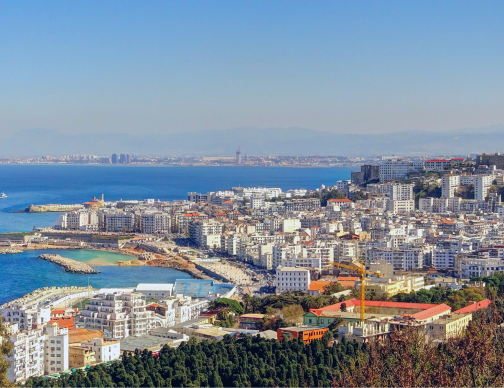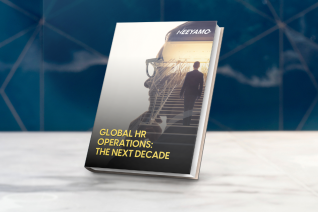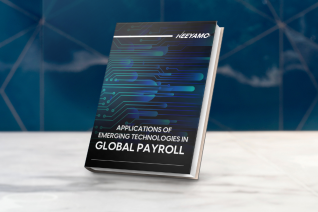Establish your presence globally with Neeyamo as we help you go beyond borders to manage your international payroll services and hire new talent in Algeria.
Overview
With over 80% of the country occupied by the Sahara desert, Algeria is the largest African nation by area. However, the more than 2.5 million residents residing within the desert's borders can affirm that Algeria boasts far more than just vast stretches of sandy terrain.
Do your organization’s expansion plans require you to hire employees in Algeria? Do you lack a physical entity in the country – a key requisite to hire local talent? Your hunt for the best online payroll services is now over; Neeyamo – Global Payroll services, provides assistance for the onboarding and management of employees in Algeria along with processing a firm's payroll accounting, compliance, benefits, and more.
Tools And Instances
Facts And Stats
Capital
Algiers
Currency
Algerian Dinar (DZD)
Official Language
Arabic
Fiscal Year
1 January to 31 December
Date Format
DD/MM/YYYY
Country Calling Code
+ 213
Time Zone
Central European Time Zone (UTC+01:00)
Global Payroll
Overview
Handling payroll or global payroll management for a widespread workforce can pose a significant challenge for any organization, and the added complication of compliance can make things worse. If companies spend more time processing payroll, it directly impacts day-to-day operations and their overall productivity. The solution to this is outsourced payroll services.
Over the years, Global payroll companies such as Neeyamo – global payroll providers, have observed these complexities and strived to provide a global payroll solution through a single technology platform - Neeyamo Payroll.
Payroll Taxes
Payroll tax is the percentage amount retained from an employee's salary and paid to the government to invest in the general population's welfare. These are statutory in nature and are levied from both the employer and employee. Additional statutory contributions are made by employers towards providing both short-term and long-term benefits for their employees.
Payroll Associations
The Global Payroll Association (GPA) is instrumental in supporting individuals and global payroll companies engaged in payroll and its related functions. These associations offer many advantages that foster professional growth, facilitate networking prospects, encourage knowledge exchange, and promote industry advocacy.
Employee Taxes
Social Insurance contributions - 9.00%
The income tax bracket is as follows:
| Up to 240,000 DZD | 0% |
| 240,001 DZD to 480,000 DZD | 23% |
| 480,001 DZD to 960,000 DZD | 27% |
| 960,001 DZD to 1,920,000 DZD | 30% |
| 1,920,001 DZD to 3,840,000 DZD | 33% |
| Above 3, 840,000 DZD | 35% |
Employer Taxes
Social Insurance contributions (to cover retirement, illness, unemployment, and work accidents): 26.00%
Payroll Cycle
Overview
Undoubtedly, payroll is a critical process for any organization. The pay cycle in Algeria refers to the period for which an organization pays its employees, and this can vary depending on the pay frequency that the organization chooses to adopt.
Frequency
In Algeria, it is common for employees to be paid on a monthly basis. The option for bi-weekly pay exists. However, it is preferred to be paid monthly.
13th Month Cycle
In Algeria, the 13th month's wage depends upon the company.
Global Work
Overview
An Employer of Record (EOR) service provider helps you eliminate the hassle of handling complexities while onboarding a new employee in an international location. They help bridge the gap that otherwise mandates organizations to have a local registered entity and a local bank account prior to making a job offer to an international hire.
Providers of EOR services act as legal employer, facilitates salary payments, and manages other statutory requirements such as health insurance, payroll taxes, and employee benefits, ensuring compliance with local tax laws and regulations.
This allows organizations to focus on collaborating with the employee in Algeria for operational tasks, with the knowledge that they have a cost-effective solution to support their global business payroll & HR requirements as they continue their global expansion.
HR Mandates and Practices
Minimum Wage
The National Minimum Wage is 20,000 DZD/Month.
Overtime
Work done beyond 40 hours in a week is considered overtime and must be paid at a rate no less than 50 percent above the regular pay rate.
Overtime is only permitted in exceptional circumstances, and an employer may require any worker or an employee to work overtime only up to 20 percent above the legal working time.
Data Retention Policy
Employers are required to record the date, nature and amount of each payment, including the number of benefits. These records must be kept for a period of four years following the date the taxes are withheld.
Hiring and Onboarding Requirements
Hiring
The country’s constitution outlaws discrimination based on sex and requires that the government take action to ensure all citizens have equal rights and duties. In 2016, parliament introduced an article that encouraged businesses and public institutions to promote women to positions with greater responsibility.
The other rights and prohibitions included in the constitution are:
- The right to join and form unions, as long as the individuals are citizens.
- The right for unions to exercise collective bargaining actions.
-
The prohibition of all forced or compulsory labor.
-
The prohibition of the employment of minors in dangerous, unhealthy, or harmful work conditions.
-
The prohibition of employment, salary, and work environment discrimination regarding age, gender, marital status, political beliefs, disability, national origin, union affiliation, and family ties.
While the law prohibits employing minors in dangerous conditions, the country has not decided on a national law or regulation that reveals the types of hazardous work for children. The minimum legal age for employment in the country is 16, but younger children may work as apprentices with permission from their parents or a legal guardian.
Onboarding
Any new employee should provide the following documents:
- Job offers accepted and signed
- Detailed CV
- Copy of identity card
- Copy of "Chifa" social security health insurance card
- Full bank details (document provided by the bank)
Probation
The general probation period in Algeria is six months.
Leave
National Holidays
Algeria recognizes nine public holidays, paid by the employer, and specified in the law on hours of work, weekly rest, and paid leave.
Algeria's public holidays are:
January 1: New Year's Day
April 21: Eid-al-Fitr
May 1: May Day
June 28: Eid al-Adha
June 29: Independence Day
July 19: Muharram
July 28: Day of the Achura
September 27: The Prophet's Birthday
November 1: Anniversary of the Revolution
Employees that work a legal holiday are entitled to a compensatory rest of equal length and overtime pay.
Sick Leave
- Employers must pay 50 percent of their salary for the first 15 days of sick leave
- The rate rises to 100 percent after the 16th day or in the case of hospitalization
Maternity Leave
Pregnant employees are entitled to 14 consecutive weeks of maternity leave at full pay. At a minimum, the employee must take one week of leave before the birth. Benefits are paid by Algeria's social security fund.
During pregnancy and for up to 18 months after, a working woman is entitled to one day of leave per month to obtain medical attention and to care for her child.
Paternity Leave
Male employees in Algeria are entitled to three days of paternity leave for the birth of a child.
Other Leave
Marriage leave: Employers must give employees three days of paid leave in the event of their marriage.
Bereavement leave: Employers must give employees three days of leave.
Termination
Notice period
The statutory notice period is six months (increased to 12 months for skilled employees), plus five days for each year of service up to a maximum of 30 days.
Severance pay
Under the Algerian Labor Law, an employer may terminate employment on redundancy grounds only if economic reasons justify such a measure and once all alternatives aimed at avoiding redundancy have been exhausted. A redundancy is subject to a mandatory procedure, decided after collective bargaining, involving the local labor administration.
The Severance Pay in Algeria depends on the Duration of Employment, as below:
- Mandatory -1 month
- Collective Agreement – 1 month
- Minimum Employment Period – 12 months
Visa
Overview
The choices are limited for international employers under Algeria's immigration system.
Visitors on business are advised to keep their stay to no more than 15 days, even with a 90-day business visa. Foreign nationals who stay for longer than 90 days must get a Residence Permit.
Methods to obtain visa
In Algeria, there are two routes one can take to obtain a work permit:
- Annex 13 Declaration: With a 15-day validity, extensions are possible for a maximum stay of 90 days per calendar year.
- Work Permit: One-Year Validity with Possible Extensions.
Both permissions are issued locally, and each province also called a wilaya, is free to interpret the rules however it sees fit.
Employee Background Checks
Legal and Background Checks
Source: Gendamarie/National police/ Courts
Method of verification: Physical at Police/Court
Specific requirement of document: Copy of ID (Passport or National ID)
Any specific procedure: None
Method of receiving output: Emailed report
Level: Local/National
Name-based/address-based/ID number-based
What result will we get (Verbal/written/online, etc.): Name and ID-based Written
Type of records Spent/Unspent/Felony/Misdemeanours, etc.): Full search including all.
Last updated on September 04, 2023
If you have any queries or suggestions, reach out to us at irene.jones@neeyamo.com
¿Tiene consultas? Póngase en contacto con nosotros
Póngase en contacto con uno de nuestros expertos y obtenga una demostración rápida de nuestros servicios








